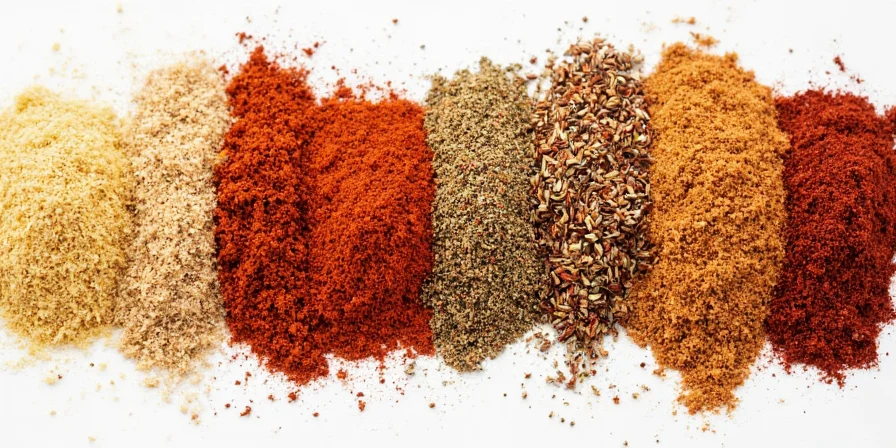Unlock the Flavors of the Mediterranean: A Deep Dive into the Mediterranean Spice Blend
The Mediterranean region is a treasure trove of culinary delights, known for its diverse and vibrant flavors. Central to this gastronomic experience is the Mediterranean spice blend, a harmonious medley of spices that brings dishes to life. In this article, we will explore the origins, ingredients, uses, and health benefits of this remarkable blend. By the end, you will be eager to incorporate it into your cooking routine!
What is a Mediterranean Spice Blend?
A Mediterranean spice blend is a combination of herbs and spices commonly used in Mediterranean cuisine. This blend can vary by region, but it typically includes a mix of dried herbs and spices that are synonymous with the flavors of countries bordering the Mediterranean Sea, such as Greece, Italy, Turkey, and Morocco.
Common Ingredients
- Oregano: A staple in Greek and Italian dishes, known for its robust flavor.
- Basil: Sweet and fragrant, basil adds a fresh note to the blend.
- Thyme: Earthy and slightly minty, thyme enhances the complexity of the blend.
- Rosemary: With its pine-like aroma, rosemary contributes a unique flavor profile.
- Parsley: Adds a touch of freshness and color.
- Cumin: A warm spice that offers a hint of nuttiness.
- Coriander: Adds a citrus-like flavor that brightens the blend.
- Paprika: Sweet or smoked, paprika brings depth and a splash of color.
- Red Pepper Flakes: For those who enjoy a touch of heat.
- Garlic Powder: A must-have for its strong flavor and aroma.
The Origins of Mediterranean Spice Blends
The use of spices and herbs in Mediterranean cooking dates back thousands of years. Ancient civilizations, including the Greeks and Romans, heavily relied on these ingredients to flavor their meals, preserve food, and even for medicinal purposes. The trade routes that crisscrossed the Mediterranean facilitated the exchange of spices, leading to the development of regional blends.
Regional Variations
While the Mediterranean spice blend is a collective term, each country has its unique take on this combination:
| Country | Typical Ingredients | Common Dishes |
|---|---|---|
| Greece | Oregano, thyme, garlic | Greek salad, souvlaki |
| Italy | Basil, oregano, rosemary | Pasta sauces, pizza |
| Turkey | Cumin, coriander, mint | Kebabs, pilaf |
| Morocco | Cumin, paprika, cinnamon | Tagines, couscous |
How to Make Your Own Mediterranean Spice Blend
Creating your own Mediterranean spice blend at home is easy and rewarding. Here’s a simple recipe to get you started:
Ingredients
- 2 tablespoons dried oregano
- 2 tablespoons dried basil
- 1 tablespoon dried thyme
- 1 tablespoon dried rosemary
- 1 tablespoon dried parsley
- 1 tablespoon ground cumin
- 1 tablespoon ground coriander
- 1 tablespoon paprika
- 1 teaspoon red pepper flakes (optional)
- 1 teaspoon garlic powder
Instructions
- Measure out all the ingredients into a bowl.
- Mix well until combined.
- Store in an airtight container in a cool, dark place.
- Use within six months for the best flavor.
Using Mediterranean Spice Blend in Cooking
The versatility of the Mediterranean spice blend makes it a fantastic addition to a wide range of dishes. Here are some ideas on how to incorporate it into your meals:
- Marinades: Mix the spice blend with olive oil and lemon juice to create a flavorful marinade for chicken, fish, or vegetables.
- Soups and Stews: Add a tablespoon of the spice blend to your favorite soup or stew recipe for an extra flavor boost.
- Roasted Vegetables: Toss vegetables in olive oil and the spice blend before roasting for a delicious side dish.
- Dressings: Whisk the spice blend into yogurt or olive oil to create a zesty salad dressing.
- Grains: Stir the blend into quinoa, couscous, or rice for a fragrant side.
Health Benefits of Mediterranean Spices
Not only do these spices enhance the flavor of your dishes, but they also offer various health benefits:
- Antioxidants: Many herbs and spices are rich in antioxidants, which combat oxidative stress in the body.
- Anti-Inflammatory Properties: Spices like turmeric and ginger can help reduce inflammation.
- Digestive Health: Cumin and coriander are known for their digestive benefits.
- Heart Health: The use of olive oil and spices may contribute to better heart health, a cornerstone of the Mediterranean diet.
Conclusion
The Mediterranean spice blend is more than just a collection of herbs and spices; it is a gateway to the rich culinary traditions of the Mediterranean region. With its robust flavors and numerous health benefits, this blend is a must-have in any kitchen. Whether you purchase a pre-made blend or create your own, incorporating these spices into your cooking can elevate your dishes and transport you to the sun-kissed shores of the Mediterranean. So go ahead, unleash the flavors of the Mediterranean in your cooking today!
Illustration











 浙公网安备
33010002000092号
浙公网安备
33010002000092号 浙B2-20120091-4
浙B2-20120091-4